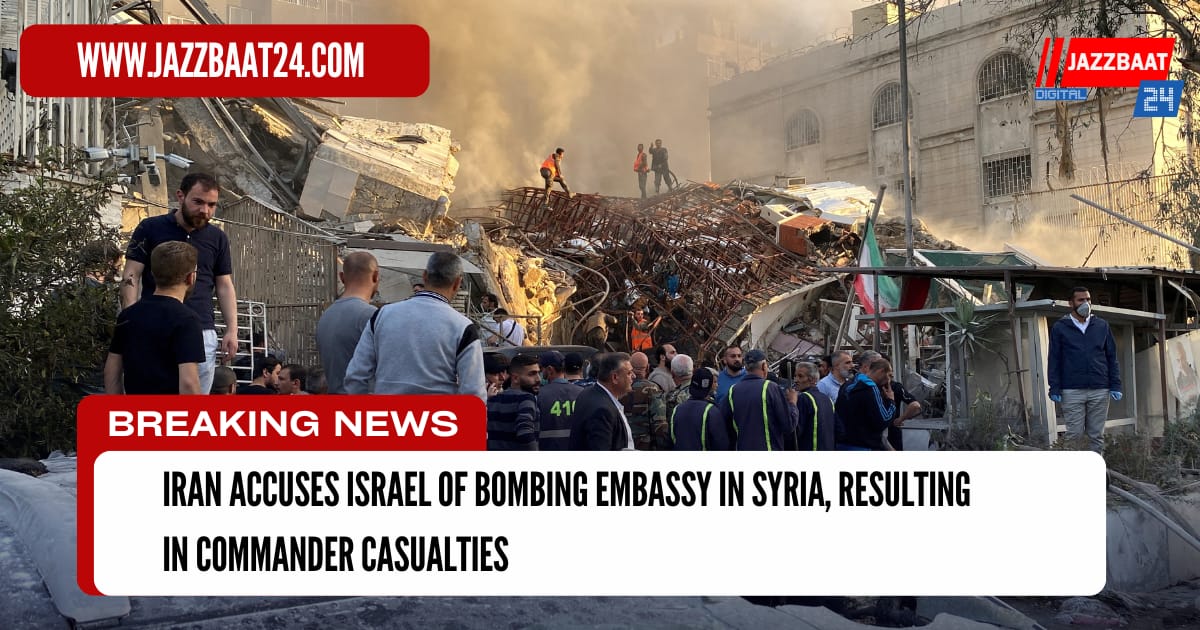Iran has plunged into a state of fury and condemnation as it accuses Israel of launching a devastating bombing raid on its embassy in Syria. The alleged attack, which Iran claims resulted in the deaths of several commanders, has intensified already heightened tensions in the volatile region, sparking fears of further escalation and retaliation.
According to Iranian officials, the embassy in Damascus, Syria, was targeted in a brazen act of aggression by Israeli forces. The bombing, purportedly carried out under the cover of darkness, inflicted significant damage to the diplomatic compound and claimed the lives of high-ranking Iranian military commanders who were stationed there.
The precise motivations behind the alleged Israeli assault remain murky, with speculation rife about the underlying geopolitical dynamics at play. Iran has long been a staunch supporter of the Syrian regime, providing military and financial assistance to President Bashar al-Assad's government in its protracted conflict against rebel forces and jihadist groups.
The purported attack on Iran's embassy in Syria represents a dangerous escalation in the ongoing hostilities between Iran and Israel, two regional adversaries locked in a bitter struggle for supremacy. The incident has reignited fears of a wider conflagration in the Middle East, with the potential for spiraling violence and destabilization across the region.
In response to the alleged attack, Iranian authorities have issued scathing condemnations of Israel's actions, vowing to retaliate with "swift and decisive" measures. The Iranian government has accused Israel of flagrant violations of international law and sovereignty, calling upon the international community to hold Israel accountable for its alleged aggression.
Meanwhile, Israeli officials have remained tight-lipped about the incident, neither confirming nor denying their involvement in the purported bombing of Iran's embassy in Syria. The Israeli government's silence has only served to fuel speculation and deepen the sense of uncertainty surrounding the volatile situation in the region.
As tensions continue to simmer and rhetoric escalates on both sides, the specter of open conflict looms large over the Middle East. The alleged attack on Iran's embassy in Syria underscores the precariousness of the geopolitical landscape and the ever-present risk of sudden and catastrophic escalation.
In the wake of the incident, calls for restraint and diplomatic dialogue have grown louder, as the international community grapples with the urgent need to de-escalate tensions and prevent further bloodshed. The coming days will be crucial in determining the trajectory of the crisis and whether peace and stability can be restored to the troubled region.

